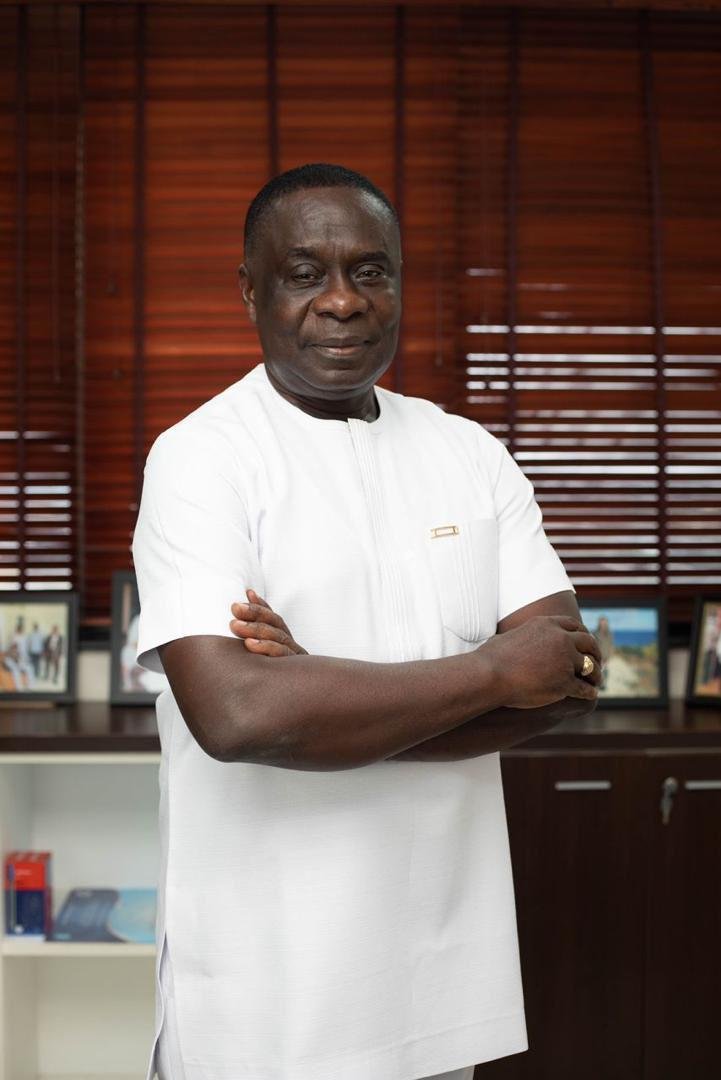News
Gyakye Quayson calls for unity and reform in Black History Month address

James Gyakye Quayson, Member of Parliament for Assin North, delivered a compelling speech in Parliament to mark Black History Month, emphasizing unity, self-sufficiency, and inclusive governance.
He paid tribute to Black leaders such as Dr. Kwame Nkrumah, Nelson Mandela, Martin Luther King Jr., and Barack Obama, highlighting their contributions to justice and equality.
He also addressed Africa’s paradox of wealth and underdevelopment, citing historical exploitation and economic dependency as major obstacles.
“Black History Month is a call to action. It reminds us of the need for unity among Black people worldwide. By learning from the past and building solidarity, we can create a future of dignity and empowerment,” he stated.
Ghana as the Gateway to Africa
Mr.Quayson reaffirmed Ghana’s role as the Gateway to Africa, pointing to the Year of Return and Beyond the Return initiatives, which have strengthened ties with the global African diaspora.
These programmes have brought investments in real estate, hospitality, and tourism, boosting economic growth and cultural connections.
Call for Reform: Dual Citizenship and Governance
A key focus of his address was the need to amend Ghana’s dual citizenship laws, which restrict Ghanaians with dual nationality from holding political office. He urged Parliament to expedite the Dual Citizenship Amendment Bill to allow skilled and committed diaspora Ghanaians to contribute to leadership and development.
“The fight against dual citizenship restrictions is not a personal battle but a national conversation. Our Constitution must evolve to reflect the global realities of our people,” he asserted.
The Black Star Experience: A Cultural and Economic Vision
Mr.Quayson also highlighted the Black Star Experience, an NDC initiative aimed at making Ghana a global hub for arts, culture, and tourism. With year-round celebrations in literature, fashion, film, and music, the initiative is expected to attract investment, create jobs, and boost local businesses.
“This initiative will enhance tourism revenues, provide skills transfer, and cement Ghana’s position as a leader in creative and economic innovation,” he noted.
Recognizing and Empowering New Citizens
Mr.Quayson advocated for policies that integrate African Americans and other nationals who have settled in Ghana, allowing them to contribute to governance and leadership.
“Leadership is not confined to nationality by birth but defined by the ability to serve, innovate, and uplift communities,” he emphasized.
A Call for Unity and Progress
Concluding his speech, he urged for a collective effort to create an inclusive and progressive Ghana.
“The journey ahead is long, but together, we can redefine what it means to be Ghanaian, ensure equal opportunities, and build a future our children will be proud of,” he affirmed.
Mr.Quayson’s remarks has reignited discussions on diaspora engagement, constitutional reforms, and Ghana’s cultural and economic leadership. His message of resilience and unity serves as a guiding beacon for the nation’s future.
News
Prioritise affordable treatment of sickle cell treatment —Health Expert

Health experts have urged Ghana to prioritise affordable and accessible treatment for sickle cell disease (SCD) as advanced, but costly curative therapies remain out of reach.
SCD, an inherited blood disorder, affects about three in every 100 newborns in Ghana.
Globally, around 1,000 babies are born with the condition daily, with three-quarters in sub-Saharan Africa.
The disease causes severe complications including chronic pain, anaemia, infections, strokes and organ damage, often leading to shortened life expectancy.
In recent years, gene therapy has been developed as a potential cure.
However, its cost—running into millions of dollars per patient—makes it financially and technically inaccessible in Ghana.
According to Dr Lawrence Osei-Tutu, a Sickle Cell and Childhood Cancer Expert at the Komfo Anokye Teaching Hospital, “the country must instead focus on practical, lower-cost interventions such as hydroxyurea”, a decades-old cancer drug proven to reduce painful episodes, hospitalisation and life- threatening complications in SCD patients”.
Taken orally, the medicine improves red blood cell function and is considered safe and effective.
“Hydroxyurea therapy is as good as the cure and a low-hanging fruit to pluck, we must bring a cure to our sickle cell warriors, but do so sustainably.” he urged.
In a chat with The Spectator here, he said to create awareness on the disease, the expert noted that despite its benefits, “hydroxyurea is not widely accessible in Ghana.”
Stressing that, “many patients either cannot afford it or struggle with irregular supply through the health system.”
Moreover, he argued that scaling up access would provide immediate relief while the country builds the infrastructure, trains specialists and secures funding needed to support curative therapies in the future.
With an estimated 15,000 babies born with sickle cell disease annually in Ghana, Dr Osei Tutu cautioned that “failure to improve access to effective treatment will leave many patients vulnerable to preventable complications and early death.”
From Kingsley E. Hope, Kumasi
Join our WhatsApp Channel now!
https://whatsapp.com/channel/0029VbBElzjInlqHhl1aTU27
Hot!
Let’s reintroduce Cultural Studies to complement educational reforms — Tourism Minister

Madam Abla Dzifa Gomashie, the Minister of Tourism, Culture and Creative Arts, has emphasised the importance of reintroducing Cultural Studies in schools as part of Ghana’s broader educational reform agenda.
She said Cultural Studies would complement existing efforts to reposition Science, Technology, Engineering and Mathematics (STEM) and Technical Vocational Education and Training (TVET) to promote digital literacy and expand Creative Arts education.
Speaking at the 2025 Homowo Festival of the people of Ningo-Prampram, held on the theme: “Education: The Best Legacy for our Children,” Madam Gomashie said cultural education was critical to national identity and development.
She noted that the festival’s theme aligned with the Government’s vision to transform education in Ghana and encouraged the youth to embrace it not only as a means of personal development but also as a way of preserving traditional values.
These values, including patience, wisdom, and hard work, were at the core of the Homowo celebration, the Minister said.
“Cultural festivals like Homowo are vital instruments for strengthening cultural identity, preserving historical memory, and fostering national unity. Additionally, festivals serve as platforms for educating the youth through storytelling, music, dance, and other traditional practices, while also providing opportunities for community engagement.”
Madam Gomashie highlighted the strong foundation that Ghana’s tourism was built on, which included culture, traditions, and the creative industry, collectively contributing to over GH¢4.8 billion to the economy.
“Festivals give tourists reasons to visit our country. Therefore, with the right infrastructure and the development of all the domains, the sector can do more than what has been recorded,” she added.
Mr Sam Nartey George, the Member of Parliament for Ningo-Prampram and Minister of Communication, Digital Technology and Innovation, commended the community for their vibrant participation in the festival. He announced plans for the construction of a new nursing training school in Ningo, aimed at expanding access to healthcare education in the area.
Nene Osroagbo Djangmah XII, Paramount Chief of Great Ningo Traditional Area; King Dr Tackie Teiko Tsuru II, Ga Mantse; Nene Tetteh Wakah III, Paramount Chief of the Prampram Traditional Area; Prof. Odaifio Welentsi III, Paramount Chief of the Nungua Traditional Area; Naana Dugbakuwor Dugba II, Paramount Queen Mother of Great Ningo; and Mr. Elvis Afriyie Ankrah, Special Envoy on Religion and Inter-Faith Affairs, who represented the Chief of Staff, were among dignitaries at the festival. -GNA














